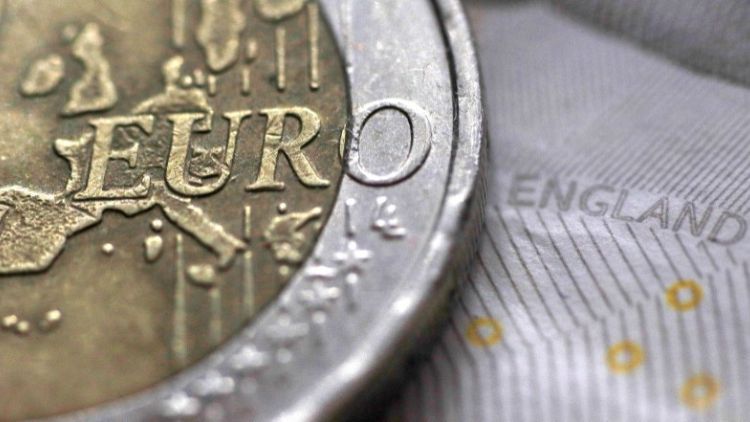By Sujata Rao
LONDON (Reuters) - Halfway through 2018, trade tension and concern about economic growth have turned European fund managers wary on equities, with allocations falling to 19-month lows and investors especially worried about the outlook for Europe and emerging markets.
The latest Reuters asset-allocation survey, conducted June 18-28, came as the U.S. Federal Reserve raised interest rates for the second time this year and the European Central Bank signalled its bond-buying would conclude by the end of the year.
At the same time, world markets have been convulsed by trade tensions between China and the United States, with threats of tit-for-tat tariffs that risk tipping the world economy into recession and slashing corporate profitability.
That has knocked world shares 9 percent off their highs at the end of January, leaving a decade-long equity bull market increasingly fragile.
"We have entered a phase of diminishing returns across the board," said Pascal Blanque, chief investment officer at Amundi. "Our narrative of a mature financial cycle and peaking economic growth is confirmed and protectionist talks expose the scenario to downside risk."
Equity holdings in European portfolios fell 1.7 percent to 40 percent, the lowest since November 2016. Cash rose to 8.5 percent, the highest since November 2016, up 2 percentage points from last month.
Equity allocations are down six percentage points since January, according to the poll, which had 15 participants in June.
However, investors are reluctant to turn their back on equities altogether. Asked whether MSCI's all-country equity index would end 2018 higher than it is now, more than 90 percent answered in the affirmative.
They are more keen on U.S. equities, noting the greater weight of technology shares in the index and tax cuts that will cushion the market, at least in the short term. The U.S. share in equity portfolios rose to 41.6 percent, the highest since October 2014.
"The positive corporate earnings momentum has remained intact and will sustain equity returns to the end of the year, even in an environment of decelerating economic expansion," Robeco strategist Peter van der Welle said.
But euro zone stocks fell 5 percentage points to 25.7 percent, the lowest since the end of 2012, possibly on signs of stuttering growth.
Fixed income allocations, meanwhile, slipped to an average 41.2 percent from May's 43 percent.
But signs of stalling European growth and the trade fears mean bond yields have struggled to rise, and European politics are tense, amid discord over migration and worries about the new Italian government's policies.
All that has forced the ECB to push the timing for its first rate rise this cycle to the end of next summer, later than expected, making it possible President Mario Draghi will finish his term next October without ever raising rates.
Just over half of poll participants who answered an extra question on the subject expect Draghi to raise rates before he steps down. But Jan Bopp, an investment strategist at J Safra Sarasin disagreed, noting this month's ultra-dovish forward guidance from the bank.
"Everything points towards a slower exit/unwind from what the market is pricing in. The ECB will likely push rate hikes until at least the end of Draghi's term. Draghi could therefore end his term without one rate hike," he said.
The other big story is the emerging-market sell off, as Fed policy tightening sends the dollar higher.
The June poll showed European funds had cut holdings of emerging equities and debt across all regions. Two-thirds of those who answered a special question said the dollar's rally against emerging-market currencies likely had further to run.
"In some countries ... it will be difficult to avoid a sharp recession of domestic demand to curb the external imbalances. But a recession will trigger fears of insolvency amongst banks, which could lead to domestic capital outflows and a second leg of currency depreciation," said Raphael Gallardo, a strategist at Ostrum Asset Management, an affiliate of Natixis.
(Reporting by Sujata Rao; additional reporting by Claire Milhench in London and Massimo Gaia in Milan; editing by Larry King)



